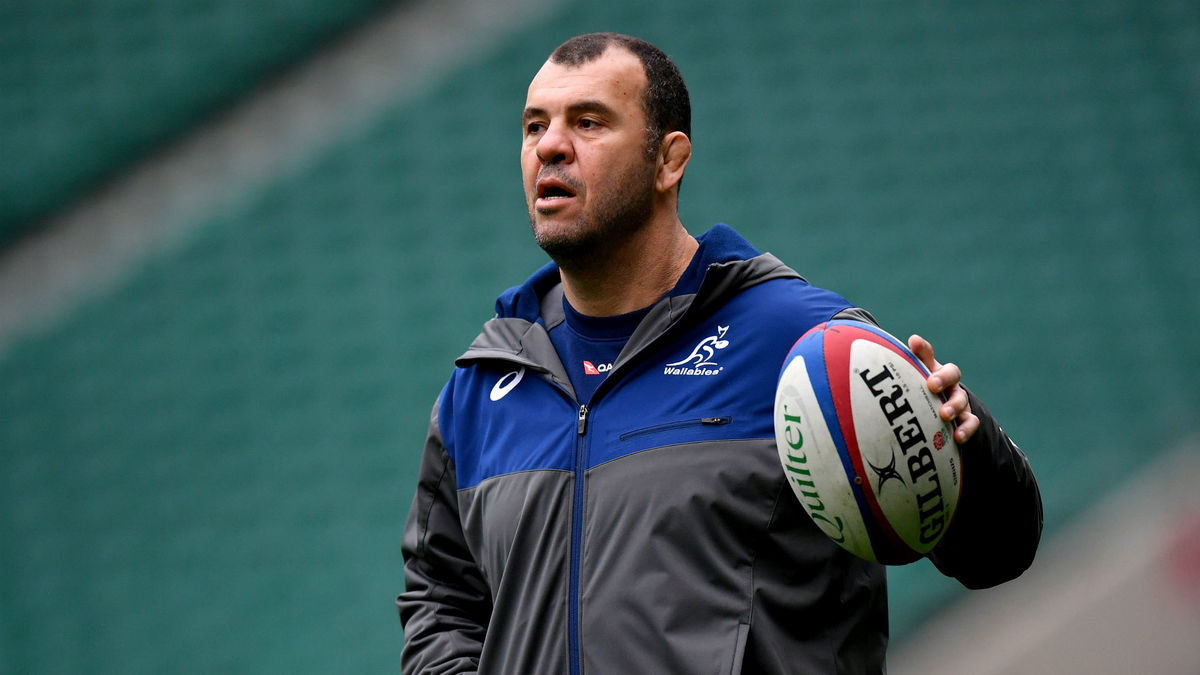Michael Cheika left in waiting by Rugby Australia

Wallabies head coach Michael Cheika will have to wait a little longer to learn his fate after the Sydney Morning Herald revealed the Rugby Australia board would be given more time to evaluate where they stand.
The board is set to meet in Sydney on Monday where Cheika and the high-performance unit will make their case. The board will then deliberate for up to two days before deciding if changes need to be made.
The meeting will break up Cheika’s tour of Australia’s four Super Rugby teams who he will be pitching his vision for the upcoming Rugby World Cup to.
Along with Cheika’s review of Australia’s season, the board will also be presented with a report from high-performance boss Ben Whitaker and CEO Raelene Castle.
Cheika has reportedly been told his job is safe, though conflicting reports emerged that the Wallabies were already looking at other options.
Former Springboks head coach Jake White – who led the Springboks to World Cup glory in 2007 – had reportedly reached out to Rugby Australia to offer his services. Once word of White’s potential involvement reached the media, Rugby Australia backtracked on a scheduled phone call with the coach.
“Jake White approached Rugby Australia and asked to have a conversation,” said a spokesperson from Rugby Australia. “Rugby Australia did not approach him but agreed to speak with him but have decided not to proceed with the call.”
Australian Scott Johnson has also been linked to the job. Johnson hasn’t taken the reins at an international team since he acted as interim coach of Scotland in 2014, but had coached both Wales and the United States before that, as well as a stint as head coach of the Ospreys.
Cheika has been Wallabies coach since 2014, reaching the World Cup final and winning the Rugby Championship the following year as he was also named 2015 World Rugby Coach of the Year.
Rugby World Cup City Guides – Oita:


































